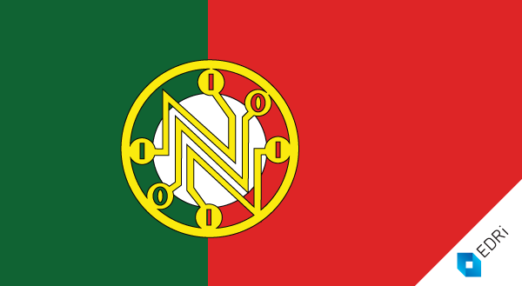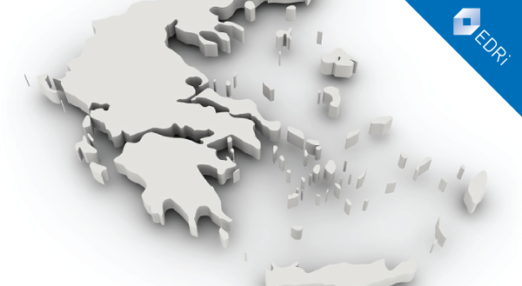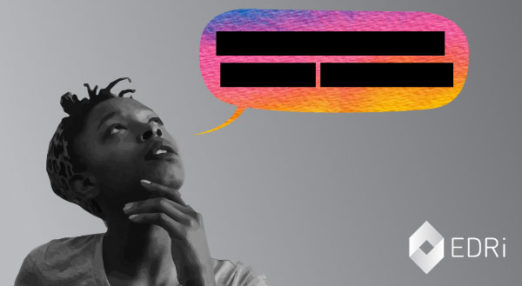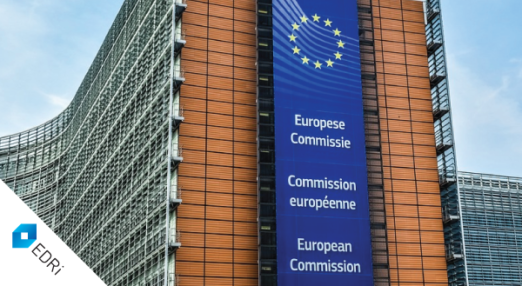Our work
EDRi is the biggest European network defending rights and freedoms online. We work to to challenge private and state actors who abuse their power to control or manipulate the public. We do so by advocating for robust and enforced laws, informing and mobilising people, promoting a healthy and accountable technology market, and building a movement of organisations and individuals committed to digital rights and freedoms in a connected world.
Filter resources
-

“E-evidence”: Repairing the unrepairable
On 11 November 2019, Member of the European Parliament (MEP) Birgit Sippel (S&D), Rapporteur for the Committee on Civil Liberties, Justice and Home Affairs (LIBE) presented her draft Report, attempting to fix the many flaws of the European Commission’s “e-evidence” proposal. Has Sippel MEP been successful at repairing the unrepairable? The initial e-evidence proposal by […]
Read more
-

Twitter banning political ads – the tip of the iceberg
Twitter seems to have learnt the lessons of the 2016 US elections. After the revelation of the Cambridge Analytica scandal, the link between the use of social media targeted political advertisement and the voting behaviour of specific groups of people has been explored and explained again and again. We now understand how social media platforms […]
Read more
-

Portuguese ISPs ignore telecom regulator’s recommendations
In 2018, the Portuguese telecom regulator ANACOM told the three major Portuguese mobile Internet Service Providers (ISPs) to change offers that were in breach of EU net neutrality rules. Among other things, the regulator recommended that ISPs publish their terms and conditions, and increase the data volume of their mobile data packs in order to […]
Read more
-

Danish data retention: Back to normal after major crisis
The Danish police and the Ministry of Justice consider access to electronic communications data to be a crucial tool for investigation and prosecution of criminal offences. Legal requirements for blanket data retention, which originally transposed the EU Data Retention Directive, are still in place in Denmark, despite the judgments from the Court of Justice of […]
Read more
-

Why tech is not “just a tool”
Throughout October 2019, digital rights-watchers welcomed new reports warning about the human rights crises of Artificial Intelligence (AI) and other digital technologies. From Philip Alston’s caution that the UK risks “stumbling zombie-like into a digital welfare dystopia” to David Kaye’s critique of internet companies’ and States’ failure to respect human rights online, civil society is […]
Read more
-

Greece: The new data protection law raises concerns
On 29 August 2019, the much awaited new Greek data protection law came into force. Τhis law (4624/2019), implements both the provisions of the EU Law Enforcement Directive (LED, 2016/680) and the General Data Protection Regulation (GDPR) into national level. However, since the first days after the law was adopted, a lot of criticism was […]
Read more
-

Hate speech online: Lessons for protecting free expression
On 21 October, David Kaye – UN Special Rapporteur on the promotion and protection of the right to freedom of opinion and expression – released the preliminary findings of his sixth report on information and communication technology. They include tangible suggestions to internet companies and states whose current efforts to control hate speech online are […]
Read more
-

EU Commissioners candidates spoke: State of play for digital rights
On 1 November 2019, the new College of European Commissioners – comprising 27 representatives (one from each EU Member State), rather than the usual 28, thanks to Brexit – are scheduled to take their seats for the next five years, led by incoming President-elect, Ursula von der Leyen.
Read more
-

Austrian Passenger Name Records complaint – the key points
Austrian EDRi member epicenter.works filed a complaint with the Austrian data protection authority (DPA) about the Passenger Name Records (PNR) in August 2019, with the aim to overturn the EU PNR Directive. On 6 September, the DPA rejected the complaint, which was a good news, because that was the only way to lodge a complaint […]
Read more
-

The sixth attempt to introduce mandatory SIM registration in Romania
A tragic failure by the police to save a teenage girl who was abducted but managed to call the 112 emergency number three times before she was murdered, led to the adoption of a new Emergency Ordinance in Romania. The law introduces several measures to improve the 112 system, one of which is mandatory SIM card registration for all prepaid users. Currently approximately ten million prepaid SIM cards are used in Romania.
Read more
-

Net neutrality overhaul: 5G, zero-rating, parental control, DPI
The Body of European Regulators for Electronic Communications (BEREC) is currently in the process of overhauling their guidelines on the implementation of the Regulation (EU) 2015/2120, which forms the legal basis of the EU’s net neutrality rules. At its most recent plenary, BEREC produced new draft guidelines and opened a public consultation on this draft. […]
Read more
-

#PrivacyCamp20: Technology and Activism
The 8th annual Privacy Camp will take place in Brussels on 21 January 2020. With the focus on “Technology and Activism”, Privacy Camp 2020 will explore the significant role digital technology plays in activism, enabling people to bypass traditional power structures and fostering new forms of civil disobedience, but also enhancing the surveillance power of […]
Read more
